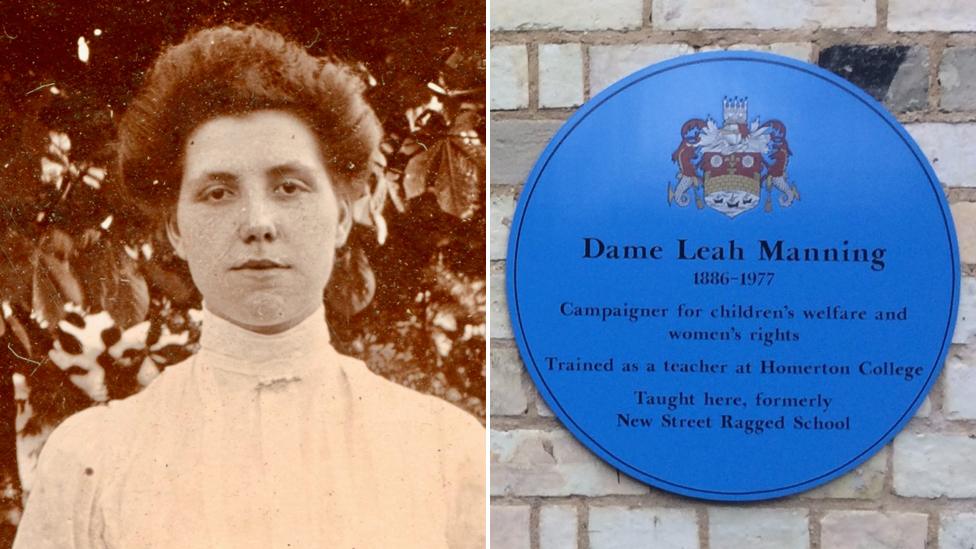Stories of East Anglia's Basque child refugees revealed
- Published
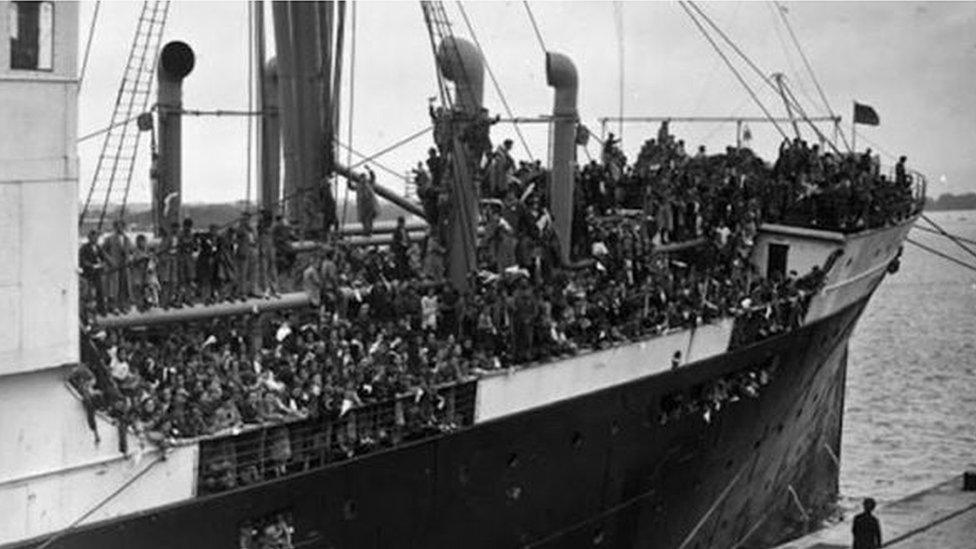
The children left the port of Santurce near Bilboa on 21 May, arriving in Southampton to be greeted by a Salvation Army band
The story of how East Anglia became a safe haven for Basque child refugees of the Spanish Civil War has been revealed online through rarely seen film and photographs.
Nearly 4,000 boys and girls arrived at Southampton in May 1937 and some found refuge in volunteer-run colonies.
Their story is told in an Anglia Ruskin University project, external.
Project director Dr Jeannette Baxter said the bombing of Guernica a month earlier precipitated their flight.
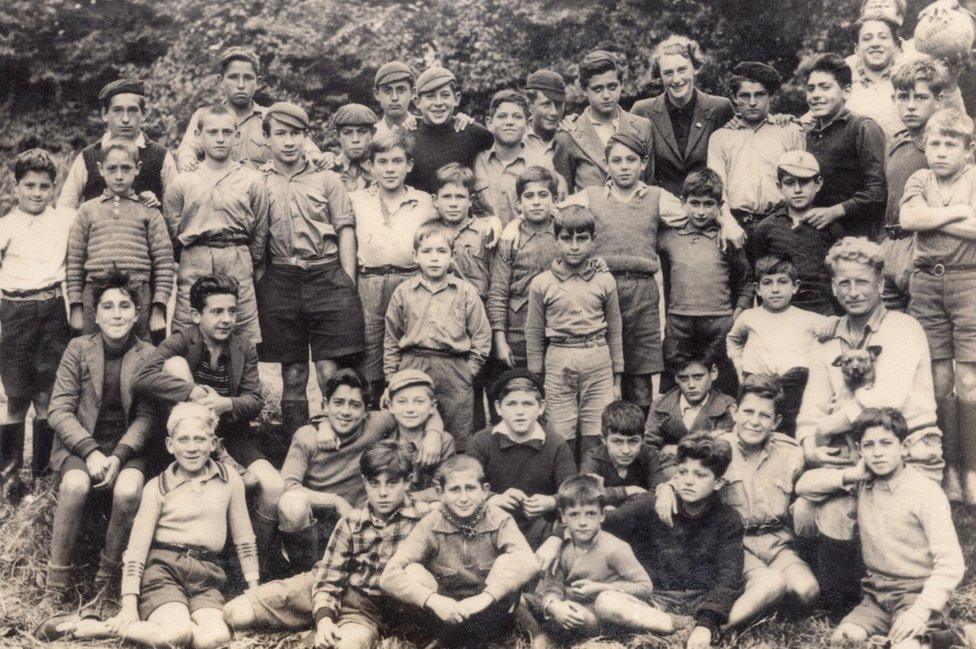
Poppy Vuillamy (top right) set up a camp for "bad boys" near Hoxne and work with the Basque refugees has largely been forgotten, according to Dr Baxter
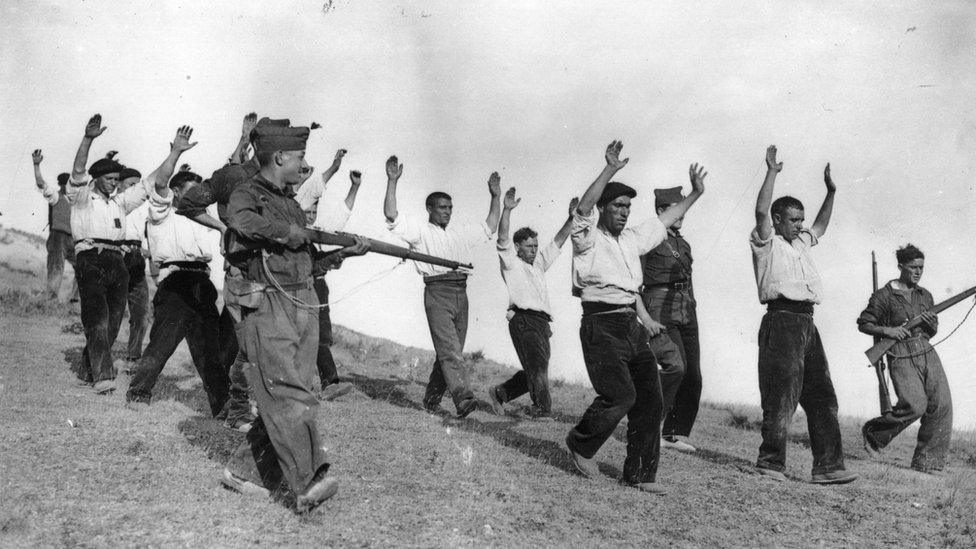
General Franco's Nationalist movement, backed by Nazi Germany and Fascist Italy, was ultimately victorious against left-wing Republicans
The Spanish Civil War broke out in 1936 and while Britain and France supported a non-intervention policy, this was not the case for Nazi Germany and Fascist Italy.
But when German and Italian aircraft destroyed 80% of the Basque market town Guernica - an event immortalised in Pablo Picasso's painting - there was an upsurge of British support which led to the rapid evacuation by ship of 3,881 children, organised by volunteers, according to Dr Baxter.
"The children, who were aged five to 15, thought they would only be gone for three months - but after Bilbao fell, they were unable to go home," she said.
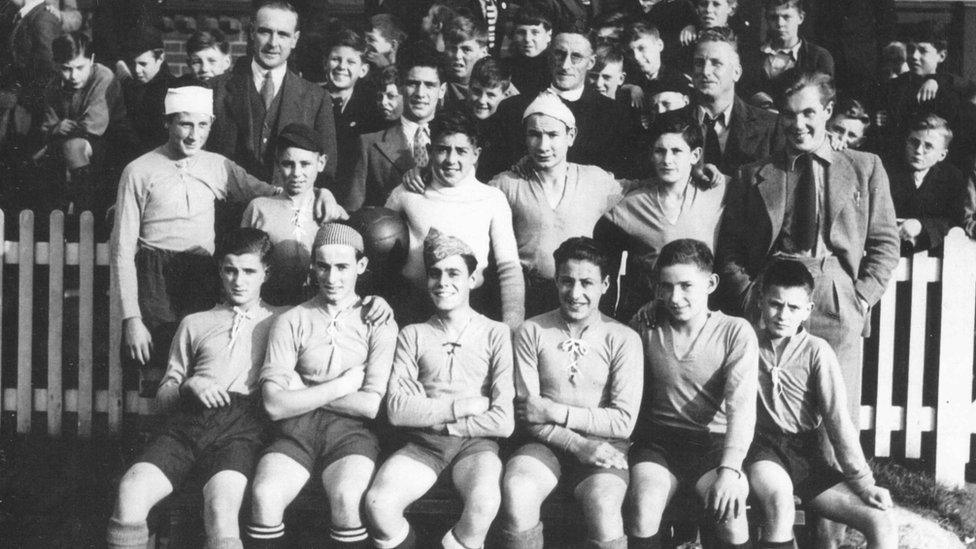
The boys left Rollesby in November 1937, but 20 were invited back for Christmas when the Basque Boys beat Great Yarmouth Boys 9-0 in a football match
Volunteer Poppy Vulliamy established a colony at Oakley Park, near Hoxne on the Norfolk/Suffolk border, for 50 older "bad boys".
Dr Baxter said: "She rubbished the idea the boys were 'bad', as the press had called them
"They were strongly political, opinionated hormonal adolescents who had been traumatised."
Ms Vulliamy encouraged them to organise a parliament to help run the colony, an organisational structure which continued when they moved to Rollesby near Great Yarmouth.
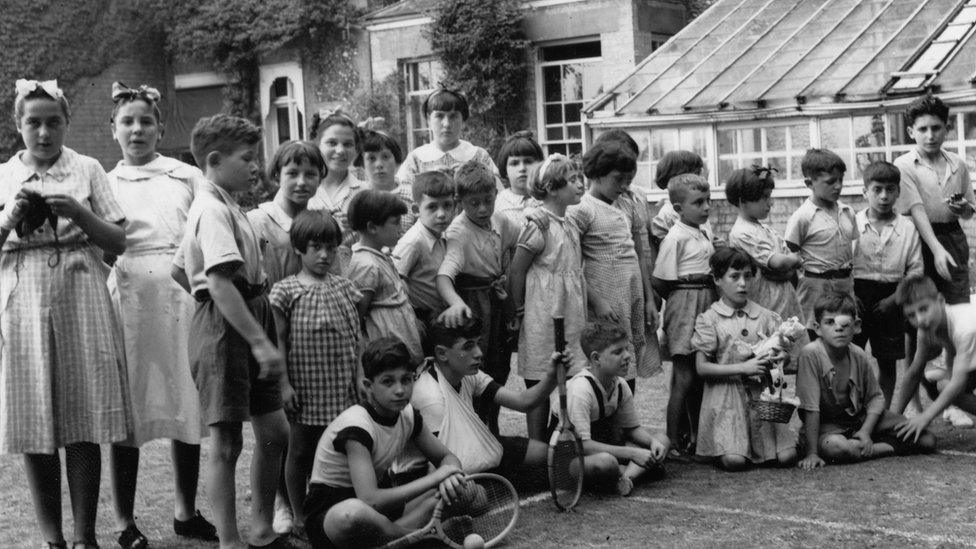
The Pampisford refugees wrote a magazine in Spanish called Ayuda. It included poems and stories, as well as reports on outings and football matches against local boys
Jessie Stewart, from the Cambridge Basque Children's Committee, helped organise a home for 29 children, first in Pampisford and later in Cambridge.
They created their own school magazine, which has been translated for the first time thanks to the Heritage Lottery funded project.
Most of the children returned to Spain in 1939 after the civil war ended.
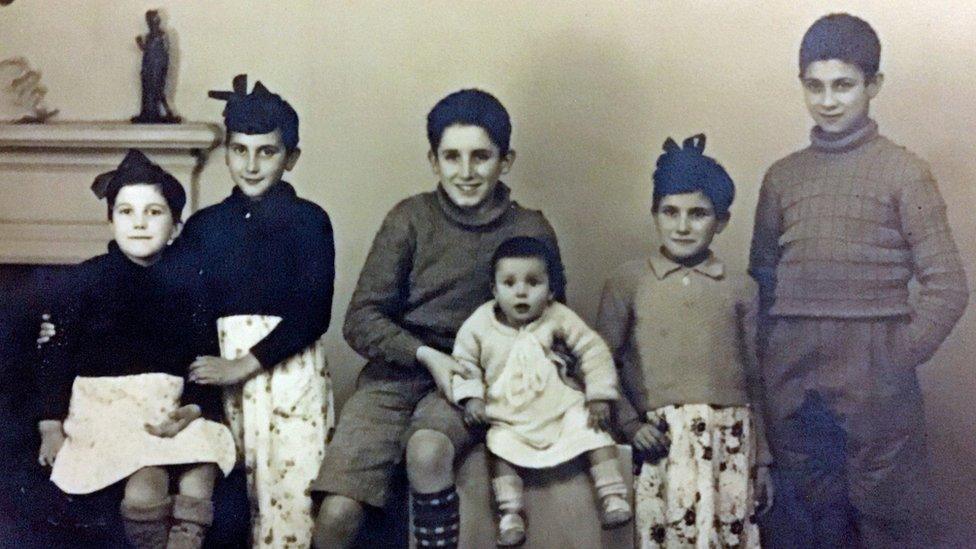
The Gallego siblings did not return to Spain. Jose (right) and Antonio (third left) played football professionally, Jose for Brentford and Antonio for Norwich, as well as for Cambridge clubs
Plans to restage a boys football match have been shelved due to the coronavirus restrictions.

Find BBC News: East of England on Facebook, external, Instagram, external and Twitter, external. If you have a story suggestion email eastofenglandnews@bbc.co.uk, external
- Published25 January 2020
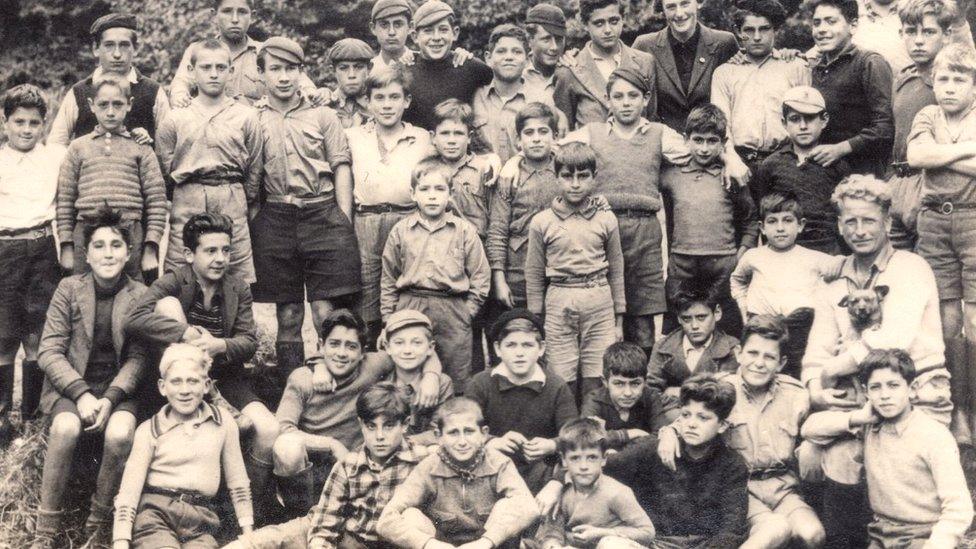
- Published11 January 2020
